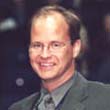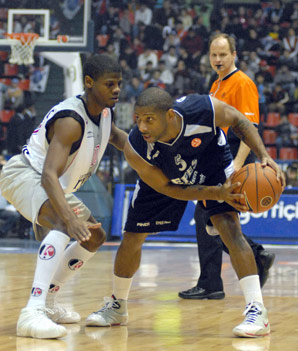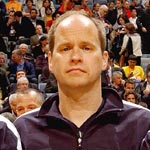 I samband med vår kontakt med toppdommeren Carl Jungebrand denne uken har vi også fått til et lite intervju med finnen som nå er med i Euroleague Technical Commision i tillegg til å dømme aktivt. Sammen med andre utvalgte toppdommere skal han arbeide med utvikling av dommere i Euroleaguesystemet. Men vi får også høre litt om starten på det hele med EM i Zagreb i 1989, og hva planene er i tiden som kommer.
I samband med vår kontakt med toppdommeren Carl Jungebrand denne uken har vi også fått til et lite intervju med finnen som nå er med i Euroleague Technical Commision i tillegg til å dømme aktivt. Sammen med andre utvalgte toppdommere skal han arbeide med utvikling av dommere i Euroleaguesystemet. Men vi får også høre litt om starten på det hele med EM i Zagreb i 1989, og hva planene er i tiden som kommer.
How did you feel as a young FIBA-referee when you where nominated to the European Championship in Yugoslavia in 1989? Working those games with some of the greatest referees in Europe must have been a special experience for you?
You know, thosedays you had to prove your ability to belong to the elitegroup mainly by yourself. There was actually no system to promote and educate referees as we know it today. But on the other hand, I had to create and mentain my position by myself. It was a good school and you really did not care about any small distractions, just concentraiting for the relevant matters.
I was lucky in my early years to referee with such great guys like Costas Rigas, Lubo Kotleba, Ivan Mainini, Wieslav Zych and with the North-Americans Joe Forte. Mickey Crowley, John Clogethry, David Dodge, Dick Steve, John Wieland and so on, all with very different styles.. I have to admit those american referees had a big influence on my refereeing style in my early years.  Carl Jungebrand i aksjonLooking back on all these games and championships, could you give us a small story or two from some memorable moments?
Carl Jungebrand i aksjonLooking back on all these games and championships, could you give us a small story or two from some memorable moments?
There has been ca. 1.300 international senior games in my career. Sure there are some memories, mostly positive and funny. One I remember like yesterday is when I had the semi-final nomination in the European Championship in 1989 between Soviet Union - Greece. I was nominated as Referee, and it was my first ever referee assignment for FIBA, and in a men's semifinal in EC?
I remember that I looked in the mirror in the morning of the game day and told myself: "Now it's time to show what you can do". And in the game spectators throwed coins towards Soviet players when they had time-outs. Tiit Sokk was hit in his head and blood came out.
The coach refused to continue to play, and there I was in the middle of some 10.000 spectators looking at me. I was thinking what I could do, because thosedays first prioruity was to finish the game.
I went to the coach (whose english was not so good) and said: "You've got five seconds to put your guys back on the floor and play."
I don't know if he even understood what I said, but fortunately he agreeded and we were able to finish the game.
How do you see your role in the Euroleague technical commission, and what kind of work will you be doing for Euroleague in the time to come?
We got a new structure in the EuroLeague referee section last season. I would say that we have highly motivated and productive people in the committée, whose main aim is to get better refereeing in EL.
I feel that my role is mainly to bring some new ideas, and try to practizise some ideas systematically that we are able to establish a system rather than actions based on people. After the first year, I am very proud to be part of the programme were we are able to help EL-referees, because they are very professonal in their mind set.
We try to provide more systematic education and training programme to ensure that referees have all the possible tools to be able to performe better in the games. But you have to remember that programmes and training sessions are only tools, the final improving depends on the referee's ablility to use these various possibilities. It's like shopping raw materials for meal, good chefs makes the different.
What's your plans regarding to continue officiating? I have been around 24 seasons in FIBA etc. and still enjoying a lot. Unfortunately my body does not alsways agree with my mind. I got some back problems lately, nothing too serious, but something which need to be taken care of properly.
I have been around 24 seasons in FIBA etc. and still enjoying a lot. Unfortunately my body does not alsways agree with my mind. I got some back problems lately, nothing too serious, but something which need to be taken care of properly.
I have said to myself that I will continue one year at the time, and evaluate after every season how my previous was and whether I am able to provide services to the games as expected.
Nowadays the biggest challenge is stay in speed of the development of basketball and refereeing. We have a lot of great young referees, and I am proud to work with these guys and even sometimes to give them some ideas by experience, but at the same time I have got also many new ideas from them.
So it's always two-way traffic. Keep your eyes and ears open - it's a new day and a new game everyday.
